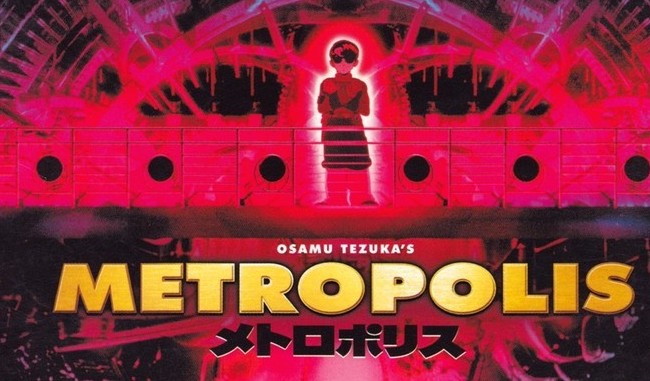
Metropolis (2001) Blu-ray Review

No, this time it’s not Fritz Lang’s 1927 ambitious and first real sci-fi classic Metropolis but the 2001 Manga version based off Osamu Tezuka’s 1949 comic book. Newly released by Eureka! in both dual Blu-ray and DVD and steelbook formats, the sharp imagery highlights what a spectacular anime this is. This film and the original book was inspired by Lang’s film rather than re-creating it in comic book/animation form. The story follows people and robots in a futuristic city where people and robots live together in an uneasy symbiosis in which robots have come to a state where they are advanced to the point they are better than some of the cold hearted humans. Like Lang’s film there is also a dis-unity between those who live above the ground and the dark underworld. There are many similarities to Lang’s classic film of course: the look of the city, a mad scientist, a human-like robot and an evil industrialist but all are woven into the plot in a very different way.
The film opens in Metropolis during a festival. Robots and humans co-exist in a relationship with some tensions in which robots are strictly controlled, discriminated against and for a large part relegated to living and working in the underworld. They are also often alienated and blamed for many of the world’s ills. An industrialist, Duke Red has opened a large skyscraper in the city, a centrepiece called Ziggurat that is not only a monument to him but will allow him to spread and export his power. During the opening ceremony a robot found to be out of the underworld is shot down by Rock, the wild gun crazy adopted son of Duke Red and an activist determined to suppress robots. A private detective, along with his young nephew, Kenichi and a robot are seeking Dr. Laughton, a scientist who works for Duke Red and is accused of illegally trafficking human organ parts and supposedly planting them in robots. Red had a daughter who died and has instructed Laughton to build an advanced robot resembling her that is called Tima. When Rock hears of this he kills Laughton and goes after the robot wildly shooting up any robot he comes up against. In a following melee the now living Tima and Kenichi become separated from his detective uncle and find themselves in the underground where they discover unrest and talk of revolution. So innocent and human-like is Tima, Kenichi is unaware that she is actually a robot (nor is Tima). Added to this there is also Rock roving on his killing spree.
Director Rintaro has taken away much of Tezuka’s more eccentric elements and instead has used a blend 0f traditional cell animation with computer generated backgrounds, particularly among the moving machinery, ‘camera’ movements, the city and in backgrounds. The work on this, as a Making Of documentary on the disc attests to was a pain staking process. Needless to say the results are spectacular. This process gives the film a great deal of movement and even added realism. The script too was provided by Katsuhiro Otomo who had previously written the groundbreaking Akira (1990), although Metropolis avoids many of the excesses of that earlier film. There is an interesting Japanese Making Of documentary on the disc that helps to understand how the film was made.
Chris Hick
